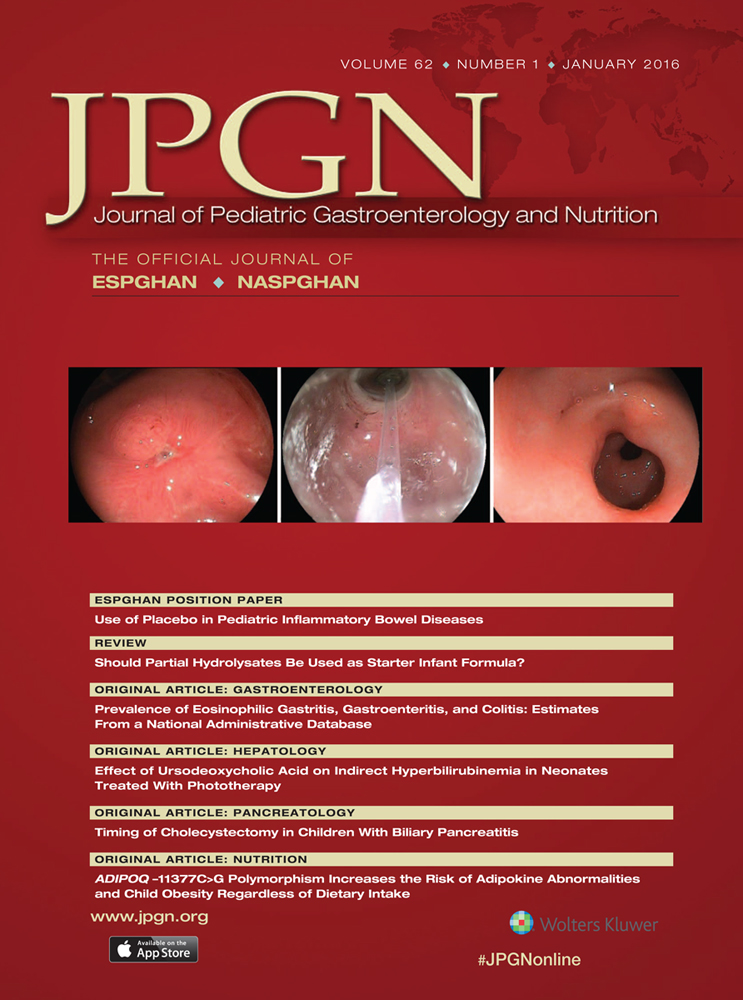Unintended Adverse Effects of Enteral Nutrition Support
Parental Perspective
The authors report no conflicts of interest.
Supplemental digital content is available for this article. Direct URL citations appear in the printed text and are provided in the HTML and PDF versions of this article on the journal's Website (www.jpgn.org).
ABSTRACT
Objectives:
The present study highlights the occurrence of unintended adverse effects of enteral nutrition in infancy and childhood, as viewed and reported from a parental perspective.
Methods:
Quantitative analysis of a standardized questionnaire, filled out online by parents of enterally fed children. The questions focused on the nutritive and nonnutritive adverse effects, and other medical and biometric data. Data were collected from January 1, 2009 to December 31, 2013.
Results:
The study cohort consisted of 425 infants and children with different underlying medical conditions and an average age of 2.17 (median = 1.63) years. Nasogastric tubes were used in 44.2% of all the patients, and 55.8% of the children were fed by percutaneous endoscopic gastrostomy tube. Nearly all of the children have been tube-fed since birth. A total of 56.0% of all tube-fed children showed regular gagging and retching episodes, 50.0% vomited frequently, 14.8% experienced nausea, 7.5% experienced extreme nervous perspiration during the feeding, 45.2% showed loss of appetite, 5.2% experienced local granulation tissue, and 1.9% had other skin irritations. No significant correlations could be found between age, sex, medical diagnoses, type of feeding tube, feeding schedules (bolus or continuous), and parental and child's behavior regarding the feeding situation and duration of tube feeding.
Conclusions:
Enteral nutrition affects the child and the whole family system on more than just nutritional level. It is suggested that children and their families should be followed-up by health professionals periodically for nutritional optimization, growth documentation, and other aspects of tube management.




